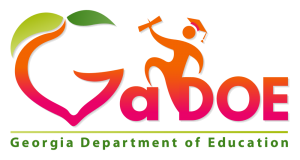Georgia Department of Education: Preparing Students to Learn, Live, and Lead
The Georgia Department of Education (GaDOE) is transforming the entire agency to focus on helping districts support the whole child so that all students graduate ready to learn, ready to live, and ready to lead. To accomplish this, the department created a cross-divisional, multi-tiered system of supports that would better meet the changing needs of the learners and families across the state.
One key initiative within this framework is a pilot to develop a digital ecosystem that will blend traditional, virtual, and personalized competency-based learning. This new technical architecture is conceptualized in part by the Department of Defense’s Advanced Distributed Learning Initiative and is led by the team at the Georgia Virtual School (GaVS).
For this project to be successful, GaDOE realized it was necessary to publish its learning standards—Georgia Standards of Excellence (GSE)—in a machine-readable format. This was a big shift from the static PDF format typically used. To do this, GaDOE used 1EdTech Consortium’s Competencies and Academic Standards Exchange® (CASE®) standard. CASE is used to exchange information about learning standards and education competencies as well as rubrics and criteria for performance tasks.
As Contributing Members of 1EdTech, GaDOE was the first state agency to publish its learning standards in the CASE format. Prior to this, the GSE were published in a PDF format making them work for humans but not so much for software such as learning management systems or assessment systems. The GSE had to be retyped into a machine-readable format so the data could be consumed by these systems at the risk of manual errors or misinterpretation by third parties. “By undertaking this initiative now, we are reducing the people hours we will need in the future to revise and update the GSE,” explains Dr. Caitlin Dooley, Deputy Superintendent for Teaching and Learning. “No longer will we be creating documents from scratch, retyping from PDFs or spending valuable time on other tedious tasks. Now, we can start directly from a digital format any time an update is required and make updates instantly available to all parties when adopted by the Georgia Board of Education.”
By providing all of the GSE in the CASE format, open-educational resources are more easily aligned to the standards and thus discoverable when searched by teachers and students. Districts and individual educators can build crosswalks to their local learning targets, organize assessment results, and discover content through these crosswalks.
GaDOE understands the advanced insights that are possible as a result of their commitment to revolutionizing their digital ecosystem. They are providing educators a faster and more reliable way to align and realign content to learning standards, find and share content from different sources, and support the transition to standards-based and competency-based learning.
“Having this machine-readable data—rather than a ‘stack of PDFs’—will assist Georgia districts, schools, and those creating curricular material and open educational resources in ensuring tight alignment to our state’s academic standards,” Georgia State School Superintendent Richard Woods said. “Our standards are created with the direct input of educators, parents, students, and the community, so it’s a top priority for us to ensure that the resources available to teachers are well-aligned.”
The pilot is initially focusing on the domain of Computer Science and Computational Thinking. Dr. Dooley says, “We started with Computer Science because of our recognition of the importance this area plays in preparing our learners for the future, a willingness to explore new teaching and learning models within this subject area, the need for increased job-ready candidates in this area, and a lack of candidate diversity.”The agency is developing learning pathways for Computer Science in OpenSalt, an open source platform. OpenSalt is a free, CASE 1EdTech-certified tool for managing and publishing frameworks and crosswalks to other standards. By aligning to the National Computer Science Teacher Association framework as well as to local district competencies, Georgia educators will be able to align high-quality content produced and curated by GaVS to the GSE and organize it into units of learning.
The approach is to provide a range of learning experiences including in-classroom, after school, and self-directed learning opportunities aligned to Computer Science competencies. During this process, the GaVS team are creating new types of assessments, which include timely feedback.
Dr. Keith Osburn, Associate Superintendent for Virtual Learning, says, “We also set a goal for the transferability of competency assertions in an open ecosystem to support any time, any place, any pace learning in school, out of school, and online. We believe these will be indispensable in enabling schools to transform to personalized competency-based learning.”
GaVS students submit their work via the learning management system and it is evaluated via competency rubrics. Then the student earns a digital credential using the 1EdTech Open Badges (OBv2) standard. The portable badge contains a link to the mastered competency (all Georgia Standards are published at http://geogiastandards.org) and a secure access link is also included to the student’s work as evidence of their level of mastery.
This digital credential is also another step in the student’s career learning pathway. These awarded badges are presented to learners as an advancement along the pathway to further goals such as college, military service, or even an entry point to a career.
Verifiable digital credentials such as OBv2 are an increasingly important means for educational institutions, employers, and other learning organizations to recognize a learner's skills, competencies, and achievements. GaDOE recognizes the value of this tool in their Total Learning Architecture pilot and for their overall goal of serving the whole child.
1EdTech members like GaDOE are leaders in implementing innovative educational models, developing best practices for the design of digital credentials and programs, and collaborating to advance the digital ecosystem through 1EdTech-certified standards such as CASE, OBv2, and Comprehensive Learner Record that enable learners to learn, live, and lead in an increasingly complex world.